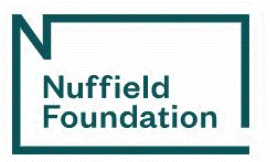Project Objectives
This project aims to listen to minoritised looked-after children and young people’s narratives on ethnicity, religion and identity, to inform policy and practice about their needs. The project will address the following objectives:
RO1: Collate 30 life history narratives from care-experienced minoritised children and young people (ages 14 to 19)
RO2: Develop a complex intersectional framing of minoritised ethnic- and religious-heritage children and young people's identities in care, particularly around the intersections of ethnicity and faith
RO3: Develop training and policy initiatives in partnership with practitioners to ensure that children and young people’s voices inform social work practice
Our previous research focussed on Muslim-heritage children and showed that faith-identity aids some children’s well-being in looked-after care. It also demonstrated that for some children, religion and ethnicity are central to their identities, whereas for others these are peripheral to who they are and the care they need (Cheruvallil-Contractor et al 2021, 2018). Less is known about the extent to which minoritised looked-after children and young people’s different views and experiences of religion and ethnicity are included in decisions made about their lives.
This research will address this gap by understanding religion through children’s voices. Rather than textual or adult-led paradigms, we aim to focus on the ways in which children understand and describe faith, and how they say their experiences vary with ethnicity and other aspects of identity such as their age, gender, sexuality and class. We will approach the research open to multiple interpretations of religious experience. We will thus explore the ways in which young people and children engage with faith whilst in care and also document transitions and transformations within their faith identities. Being evidential about exiting or leaving faith will assist in developing practices that support unaffiliated belief and non-belief in relation to children's needs.
Impact Statement
Research impact / outcomes will follow three impact tracks.
CONCEPTUAL: This research is one of the first explorations of looked-after care, race, and religion from the perspective of minoritised children and young people in the UK. It will act as a threshold for academic understandings of the identities of looked-after children with lived experiences of faith. We will produce two journal articles and present findings at two relevant academic conferences to engage researchers across disciplines (Target Journals: Religions; Child & Family Social Work). By providing empirical evidence in an innovative and empowering framework around how children from minoritised ethnic and religious backgrounds in the UK experience their identity while in care, we will address a gap in the scholarly literature on child agency and advocacy in the care system. Our vision is for this project’s rendering of children’s identity to percolate into further academic work, policy and practice.
INSTRUMENTAL: This track is aimed at dissemination and information-sharing with general public around project findings and more generally, around the needs of looked-after children. There is a shortage of adopters and foster carers from minoritised ethnic and religious backgrounds. The impact tools in this track will use diverse languages, visuals and cultural markers familiar to minoritised communities.
- We will build and launch a project website to act as a depository for data. The website will aim to engage a wide range of stakeholders, including minoritised ethnic and religious communities, by signposting resources, such as foster and adoption agencies and child support services.
- We will develop with participants a short animated film around children’s identities to be as an educational resource (this video from investigator SCC’s previous research is an example of a research-informed animated resource - https://www.youtube.com/watch?v=P-qeQ3kiW7E&t=5s). This film will raise awareness of key issues. It will act as a hook both to draw in interest and then to signpost to more detailed information for potential carers to access.
- Two detailed webinars aimed at raising awareness of the need for adopters and foster carers from minoritised religious and ethnic backgrounds The webinars will focus on findings that improve community understandings of the needs of looked-after children who come from ethnic and religious backgrounds similar to their own.
- The website will also host podcasts from young care leavers around aspects of their life story
CAPACITY-BUILDING: This final capacity-building track is aimed at influencing frontline social practice and top-level policy. In the past two years, we have conducted training on supporting looked-after Muslim-heritage children for around 500 social workers via 15 training workshops delivered in partnership with research partners. We have also developed a strategic guide for social work leaders with Research in Practice. We will continue this collaborative approach.
- We will organise three workshops with social work practitioners across England in partnership with CoramBAAF, CVAA and Research in Practice. These workshops will be constructed around case studies of the lived experiences of religious-heritage children in care to improve the faith literacy and decision-making of social work practitioners and policymakers. Workshops will aim to dismantle blind spots in social work practice by sharing the good practice we uncover in the research.
- We will publish a practice tool, a podcast, a frontline briefing document (with RiP), a policy brief and a strategic guide (with CoramBAAF) and a main public report. Our publications will target different levels with social work organisations:
- The practice tool, podcasts and frontline briefing will include both good practice and case studies from children’s narratives. This balance is key – good practice principles are more abstract, case studies bring these principles to life. These will supplement the training that we deliver as part of the workshop and will together inform frontline social work practice
- The strategic leadership guide will be written for social work leaders, it will aim to influence practice at a strategic level
- A succinct policy brief will be shared with policymakers via the project advisor based at DFE and the PI’s existing role on the National Adoption Recruitment Steering Group
- The public report will be aimed at professional and practitioner audiences to share evidence-based practice on how children in care negotiate faith.






